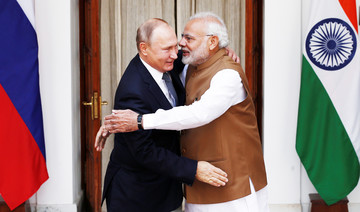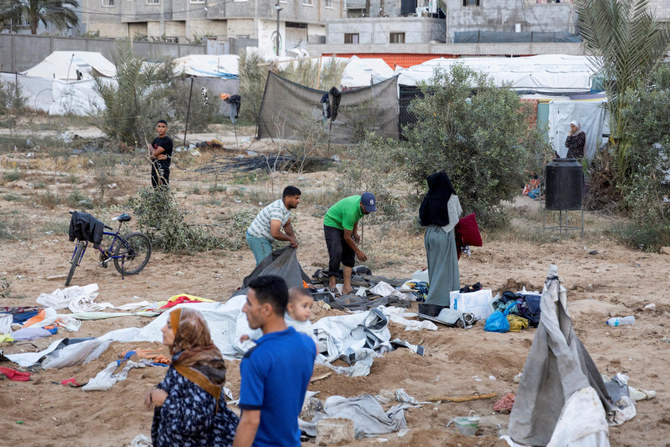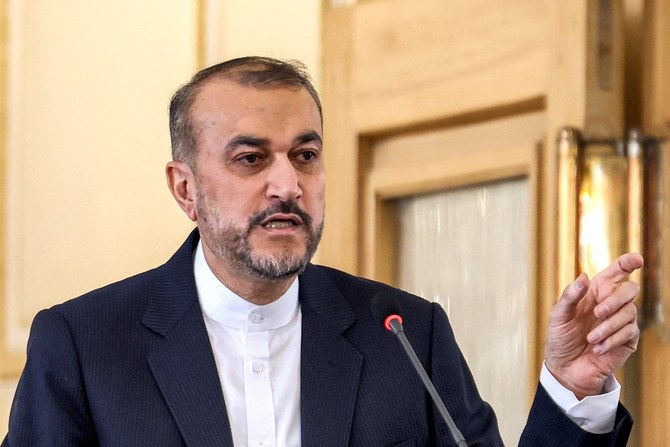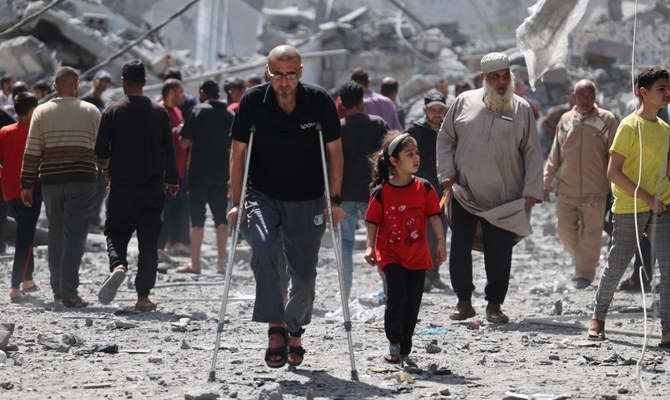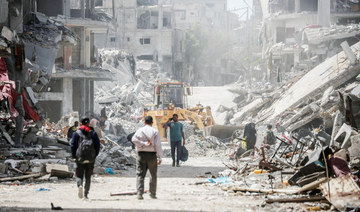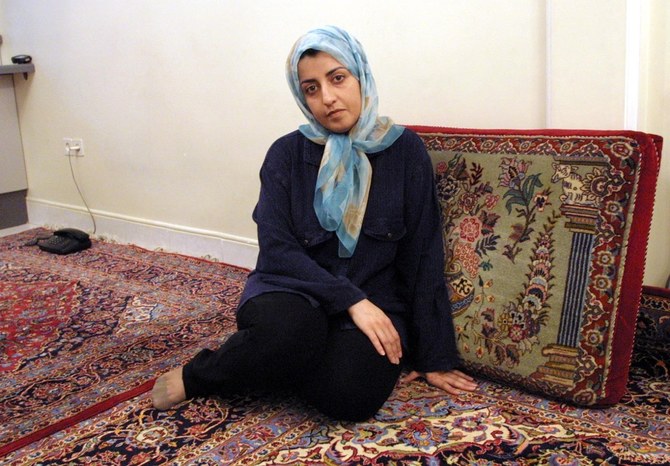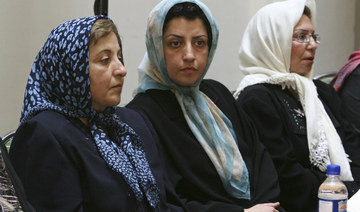ANKARA: The Pentagon announced on Tuesday that the US State Department had given the green light to a possible $3.5 billion sale of a Patriot missile system aimed at improving Turkey’s air and missile capabilities.
The US Congress, whose members are renowned for their anti-Turkey stance, has been notified of the proposed sale, which will consist of 80 Patriot guidance-enhanced missiles and 60 other missiles, as well as launching stations, radar sets and engagement control stations.
However, experts note that Turkey is at a crossroads in choosing between the American and Russian defense systems — a decision that will also have repercussions over regional security.
Washington is highly concerned that its NATO ally is considering buying S-400 surface-to-air missile systems from Russia, which would not be compatible with the weapons of other NATO countries and would undermine the security of the alliance.
On the other hand, if Ankara cancels Turkey’s S-400 purchase, it will surely undermine its relations with Moscow. Another claim is that Turkey may prompt Moscow into giving some concessions in military field.
“The real breakthrough would only be if Turkey abandoned its plans to buy the S-400s,” said Nick Danforth, a senior policy analyst at the Bipartisan Policy Center’s National Security Project.
“For the Patriot sale to move forward, Turkish officials would presumably also have to convince Washington they weren’t going to buy the S-400s, which will be hard when they keep insisting they will,” he told Arab News.
Offer
Danforth thinks that this offer will test Turkey’s claim that it only turned to the S-400s because a better US alternative wasn’t available.
But Ankara is planning to buy both missile-defense systems even if the US decides to sell Patriots to Turkey, Bloomberg reported based on two Turkish government officials.
In late November, Erdogan’s spokesperson Ibrahim Kalin announced that “Turkey doesn’t have to meet its needs from a single source.” Similarly, Foreign Minister Mevlut Cavusoglu also signaled last month that Turkey would not take a step back on the S-400 deal with Russia in an attempt to diversify its defense suppliers.
According to Danforth, notwithstanding the technical side, politically, there is no way Washington would let Turkey buy both.
Serious sanctions
Purchasing weapons from Moscow risks violating the Countering America’s Adversaries Through Sanctions Act (CAATSA) and may result in serious sanctions.
On the other hand, it is hard to interoperate Patriot systems with Russian-made S-400s under a single control system if Ankara decides to deploy both, analysts emphasize, adding that the US won’t allow the Russian access to its highly classified technology.
The State Department announced that the deal “will contribute to the foreign policy and national security of the United States by improving the security of a key NATO Ally on the front lines of the fight against terrorism.”
For Caglar Kurc, a postdoctoral research fellow at the Ankara-based Center for Foreign Policy and Peace Research, the US move about Patriots turns them into a bargaining chip.
“The recent US decision is a public signal that they are willing to sell Patriot systems to Turkey despite Turkish officials’ discourse that the US was not willing to sell the system,” he told Arab News.
Kurc thinks that the approval by the Congress depends on how the US and Turkey resolve their outstanding disagreements, the most important one being the S-400 procurement.
“I think if Turkey reverses its decision to buy S-400, Congress would approve the sale,” he said.
However, Kurc added, this could be difficult for Turkish officials because they need to justify this decision under the shadow of a down payment for S-400.
Advance payment
Russia received an advance payment from Turkey in late September.
“They had to back down from previous statements that blamed the US for not selling Patriot systems and desire to have independent air defense capability,” Kurc said.
Ozgur Unluhisarcikli, Ankara office director of the German Marshall Fund of the United States, said that this move by the US State Department is either a sign of a perspective on the solution of the S-400 crisis between Turkey and its allies or a US posturing to put all of the blame on Turkey in case Turkey ends up, as expected, taking delivery of the S-400s and is expelled from the F-35 program.
Turkey is a key partner in the US-led F-35 program to build the stealth fighter jet where 10 companies from Turkey are involved in the production of key components.
“Even if Turkey and the US agree on a Patriot deal, the US Congress would deny its approval unless Turkey first gives up the S-400 deal or the two sides agree on a creative solution,” Unluhisarcikli told Arab News.
On the other hand, he added, there is no guarantee that the Congress would approve such a deal even if Turkey gives up the S-400 project.
“Potentially, Turkey could give up the S-400 deal for a Patriot deal, which will be rejected by the US Congress. While the stakes are very high for Turkey, as it could end up getting S-400 systems and being denied access to advanced NATO systems in the future, there is no easy way out,” Unluhisarcikli added.
However, he also noted that it is somewhat reassuring to know that American and Turkish officials are working hard to find a solution rather than digging in their heels.
Congress has 15 days to approve or reject the proposed sale.




